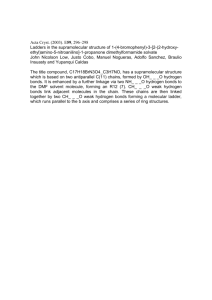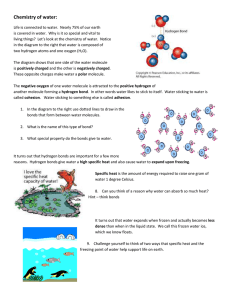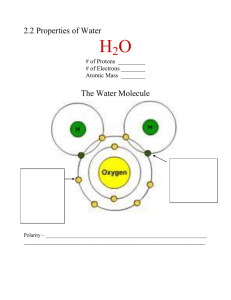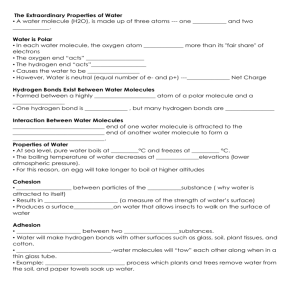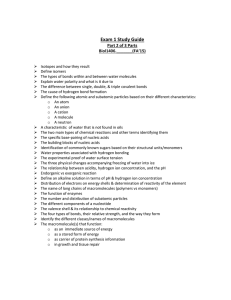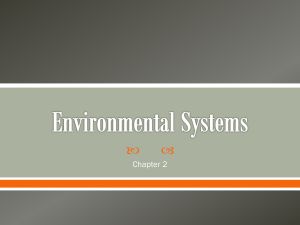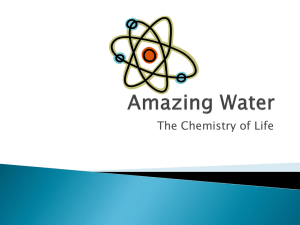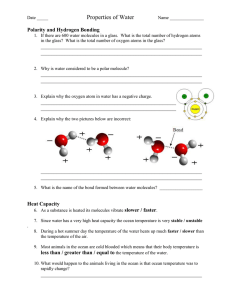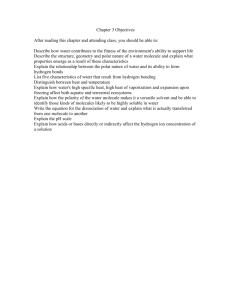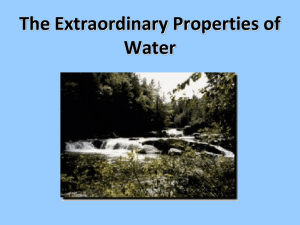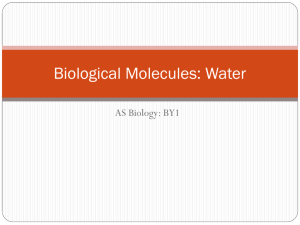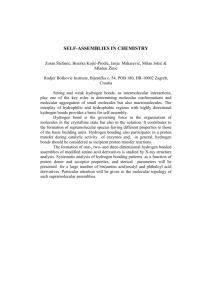The Extraordinary Properties of Water
advertisement
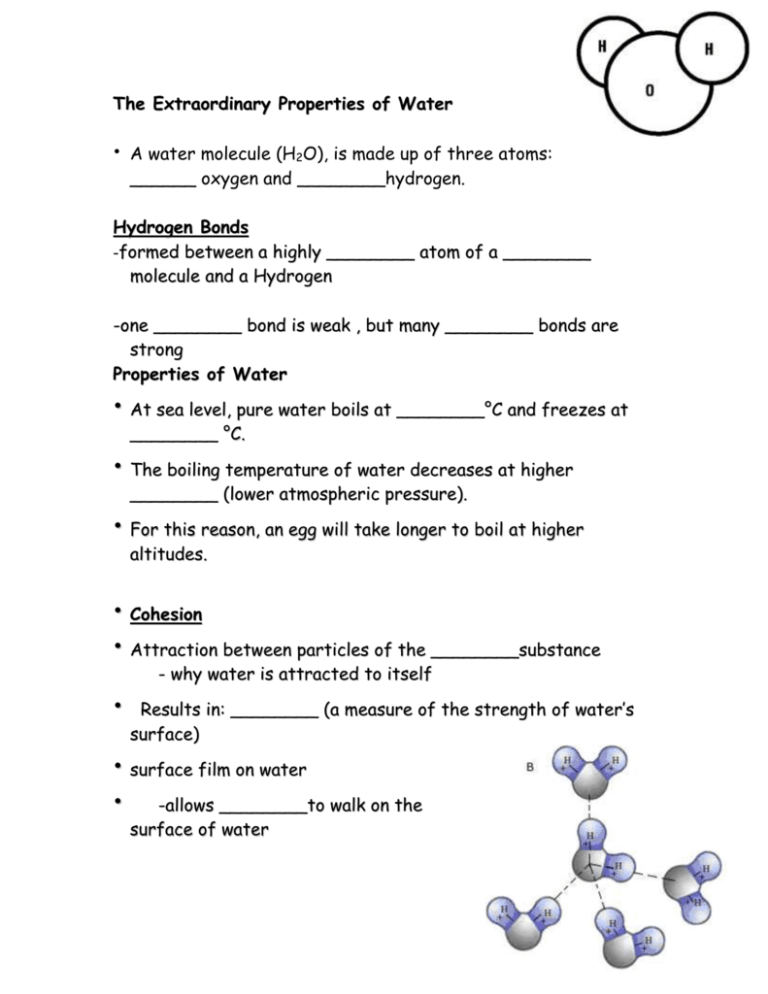
The Extraordinary Properties of Water • A water molecule (H2O), is made up of three atoms: ______ oxygen and ________hydrogen. Hydrogen Bonds -formed between a highly ________ atom of a ________ molecule and a Hydrogen -one ________ bond is weak , but many ________ bonds are strong Properties of Water • At sea level, pure water boils at ________°C and freezes at ________ °C. • The boiling temperature of water decreases at higher ________ (lower atmospheric pressure). • For this reason, an egg will take longer to boil at higher altitudes. • Cohesion • Attraction between particles of the ________substance • - why water is attracted to itself Results in: ________ (a measure of the strength of water’s surface) • surface film on water • -allows ________to walk on the surface of water Adhesion • Attraction between two ________substances. - water will make hydrogen bonds with other surfaces such as glass, soil, plant tissues, and cotton. • ________________-water molecules will “tow” each other along when in a thin glass tube. - ________ process which plants and trees remove water from the soil, and paper towels soak up water. High Specific Heat Amount of heat needed to raise or lower ________of a substance ________ C. • Water ________temperature change, both for heating and cooling. • Water can ________ or ________large amounts of heat energy with little change in actual temperature. High Heat of Vaporization Amount of energy to convert ________g or a substance from a ________ to a ________ • In order for water to ________, hydrogen bonds must be broken. As water evaporates, it removes a lot of heat with it. Density Water is ________as a Solid • Ice is ________dense as a solid than as a liquid (ice floats) Liquid water has hydrogen bonds that are constantly being broken and reformed. Frozen water forms a crystal-like lattice whereby molecules are set at fixed distances.
